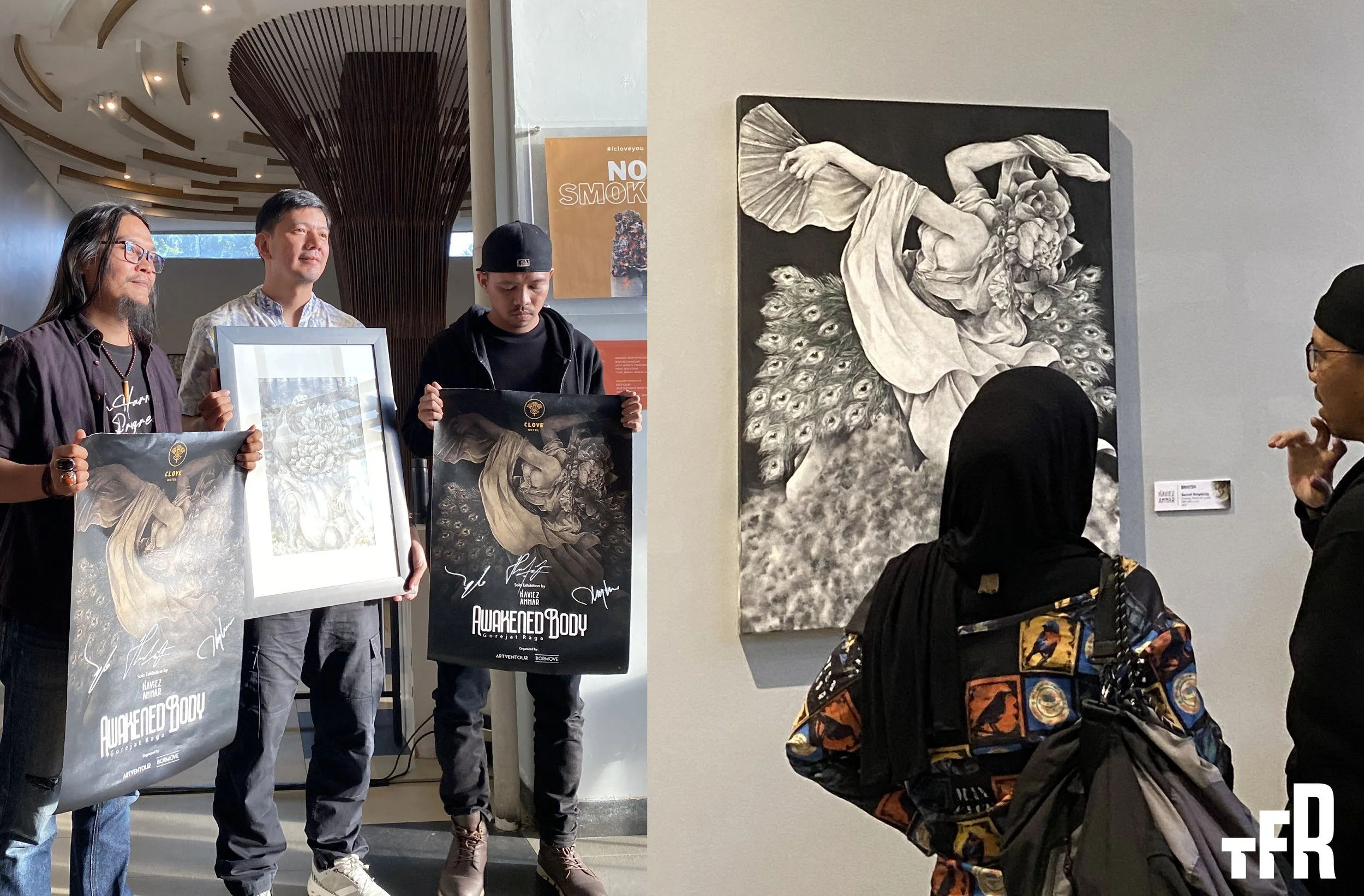Are record labels still important in the music industry?
Written by Ardela Nabila | Read in Indonesian
"As sophisticated as the tools (technology) are, they only observe numbers, there is no human aspect." That is the principle applied by Artist and Repertoire (A&R) of Warner Music Indonesia, Barry Maheswara, when looking for new talents with the help of technology.
Indeed, the music industry has undergone many drastic changes along with technological disruption. In the past, an A&R had to find artists in a traditional way by coming to music events or cafes that provide live music. Today, technology has supported and simplified the process.
This also applies to the career of musicians in general. In the past, in order to release music, one had to join a record label, but now anyone can work independently.
Music production and distribution done conventionally through record labels as the platform to market musicians’ work to the public has been made simpler with digital platforms.
This transformation has opened a huge opportunity which enables anyone to release their music without having to involve a third party.
A report by the International Federation of the Phonographic Industry (IFPI) showed that the global music revenue in 2022 grew 9% year-on-year to Rp397.27 trillion, dominated by the streaming segment.
Streaming subscription made up 48.3% of the global music industry’s revenue, followed by streaming with ads which contributed 18.7%. Data from katadata.co.id databoks showed that streaming platforms such as Apple Music and Spotify contributed as much as 67% to the global music industry’s revenue in 2022. Physical works such as CD, vinyl and cassettes only contributed 17.5%., while global music revenue from royalties only made up 9.4%.
So, how is the relevance of record labels in the music industry today? Does a musician still need a third party to distribute their music?
Record label is still irreplaceable
Apparently, Barry deemed that even in the midst of the emergence of digital platforms to distribute artistic expressions individually, record labels still have a crucial, irreplaceable role.
Barry Maheswara | Source: Warner Music Indonesia
The claim is not without reason, because record labels have reliable infrastructure and ecosystem as well as decades of experience in managing musicians’ careers.
This means that musicians joining a record label can enjoy more support in marketing their music and build a strong branding to make them stand out amongst other musicians who may not sign with any label.
“It doesn't mean that without a label a musician cannot achieve success. But maybe with the help of a label and the proper vision alignment, the time needed for an artist to reach certain success, lets say (without a label) it can take 10 years. Maybe by joining a label and receiving more support, we can help expedite that, not ten years, maybe two or three years,” Barry told TFR in South Jakarta on 19 May.
Data showed that digital charts are still dominated by musicians under certain labels.
“If, for example, we look at Spotify charts both globally and locally, we can see that the ones who dominate the charts are musicians who have joined labels. Maybe not number one or two, but if we look at the composition, of the 200 musicians in the chart, maybe 50% already have their own label, either a local major or an international major,” he added.
Daun Jatuh, a 6-member group that joined Warner Music Indonesia in 2021, can attest to this. On a separate occasion, the group, known for their single "Resah Jadi Luka", recounted their experience joining a music label.
“The most significant difference for us is that the working process is more professional in every aspect. Daun Jatuh has better direction and structure in completing our works, from the music production process to the marketing of our songs,” Daun Jatuh told TFR via a written message.
The existence of A&R in record labels makes it possible for musicians to have bigger opportunities to expand their audience reach, even to the global level.
Common mission is the most important aspect in talent scouting
In terms of talent scouting, record labels also have specific criteria before making an approach. This is because, as before, the role of labels is not only to distribute the music, but also to develop the artistic and creative skills of their musicians.
Therefore, common vision is the most important consideration before collaborating with new musicians. "In my opinion, the label-artist relationship is like a match, whether they are suitable or not. You don't always meet artists who are suitable, regardless of them matching the criteria you're looking for. Why do I say that artists and labels are like dating agencies? Matching visions. We have vision A, the artist has vision B. If these two visions cannot be reconciled and no one wants to take a step back, then it's not going to happen," Barry explained.
He added, "So when looking for the right artists, that is what we consider first. We as a label first see what our vision is, then when we meet the artist, we gotta make sure we are a fan of their music. After these two aspects are fulfilled, we will then look at the database and other aspects.”
After that, the A&R will then look at other external factors such as skills in playing instruments, skills in writing lyrics and creating music, as well as personality and flexibility in front of the camera.
"Simply put, when we do an assessment of a product, whatever it is, we will definitely see everything 360. Those are what we examine in an artist before we make a decision call," he explained.
In the end, the relationship between musicians and record labels is a business relationship. Therefore, finding the right partner and vision is the main key to a smooth journey.
All strategies revolve on the musician
Record labels, who play an important role in a musician's career, must have a specific strategy to promote their artists.
Especially today, where music preferences are not only influenced by what record labels distribute. The public now has the freedom to choose what and who they want to hear, resulting in an increasingly fierce competition among musicians.
For new musicians, this convenience also creates new challenges as they have to compete with senior and well-established musicians. This is why the promotional strategy must be tailored to the unique characteristics of each musician.
“When we can see the artist as a product with their own unique characteristics, to make an edge, we just build it around the artist and everything revolves around the artist. Artists come first, “ Barry concluded.
The future of the music industry
Just like today, Barry sees that going forward, the music industry will continue to adapt to technological developments, especially in terms of expanding the music distribution pattern. One example is the distribution of music via web3.
Barry believes that web3 will enable musicians and their fans to connect more deeply and personally. However, it could take a long time to reach the landscape.
"I'd say that's interesting, actually. Will the metaverse and web3 have a place in the music industry? I'm sure it will, eventually. But for now, because it's still new, in terms of infrastructure and technology, people haven't gotten there yet because they're not used to it,” he said.
The music industry certainly still has a long way to go. The presence of record labels with all forms of support and technology will certainly open the door to even wider opportunities for new musicians in the future.
Although, it is undeniable that the facilities offered by these developments also mean that new challenges will emerge for various parties in the music industry, including record labels.




















